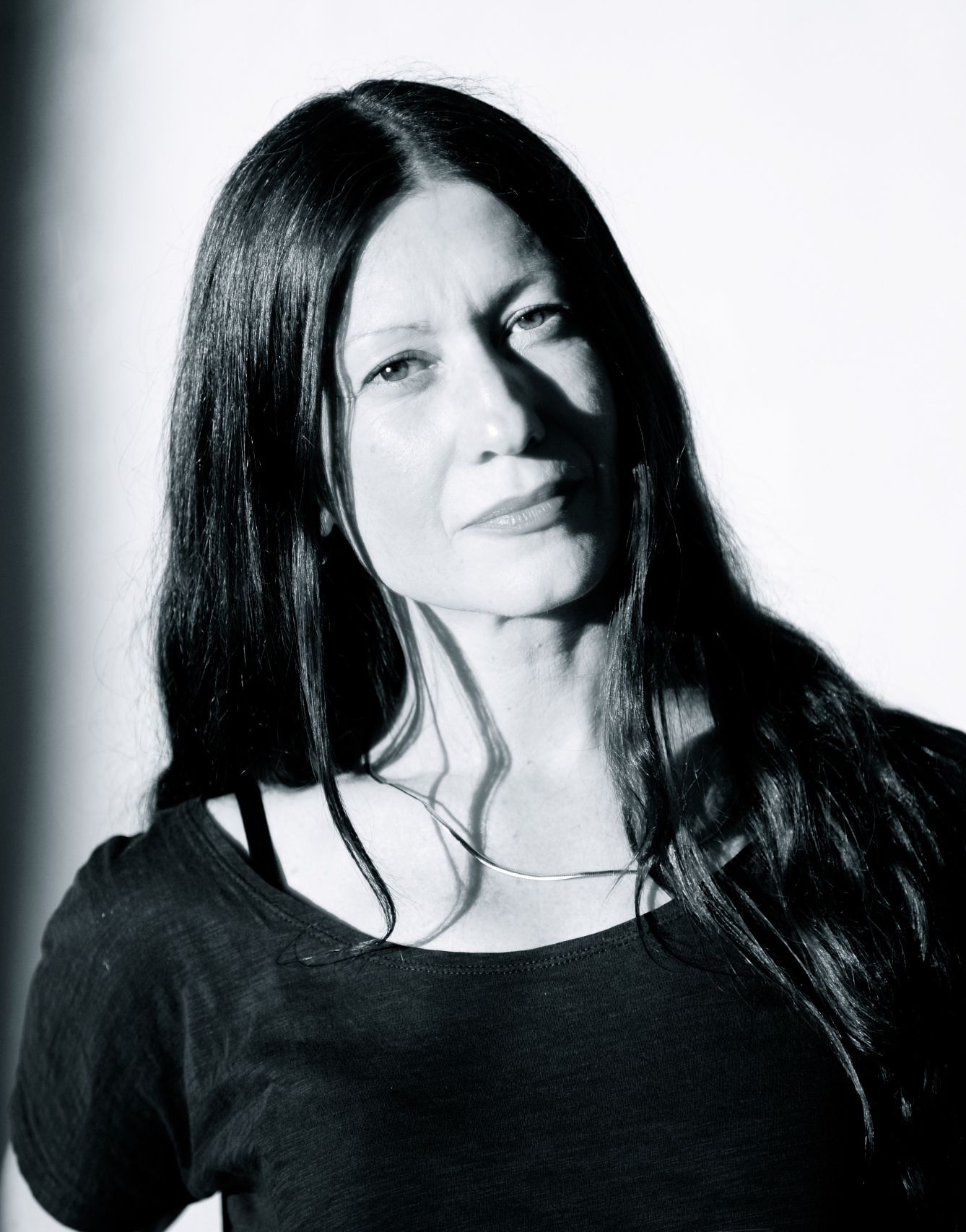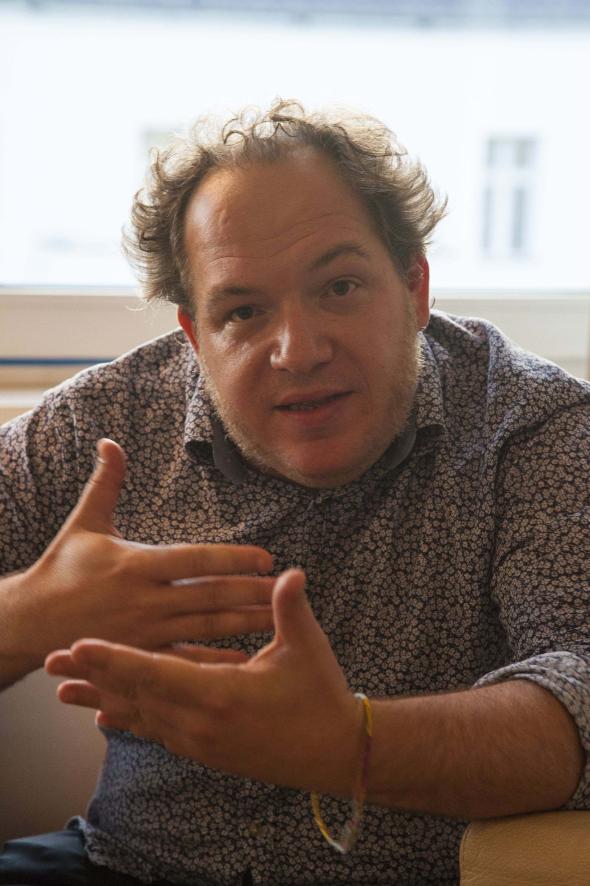France, Literature, 2013
Mathias
Énard
Scene 1: In 1854 Gustave Flaubert writes one of his countless letters to his lover Louise Colet. She, too, is a writer. Flaubert shares with her his conviction that all great literatures of the world ultimately fed on novels, which were, above all, one thing: encyclopedias of their time. Whether Rabelais or Homer, claimed Flaubert: “They knew everything”.
Scene 2: 1990. The eighteen-year-old Mathias Énard, at that time still an art history student, spends a month in Beirut, where he works for the Red Cross. The Lebanese Civil War, in which everybody fought against everybody else in the end and approximately 90,000 people died, was drawing to a close, but a rage still wreaked havoc in the city, once so famous for the coexistence of religions and cultures.
On the one hand, time spent in the war zone in Lebanon; on the other, for the literary modern, the characteristic ideal of a Homeric, thus encyclopaedic and consequently world explanatory literature. Together both fields of energy form the energetic center of the prize-winning novel “Zone”, with which writer Mathias Énard, born in Niort in 1972, achieved international success in 2008. Indeed, Énard could not forget the excesses of violence in Lebanon. He obtains a degree in art history, studies Persian and Arabic literature, frequently travels to the Middle and Near East, and, in 2003, presents his first novel, “La perfection du tir” (The Perfection of the Shot). This novel already deals with the “craft of killing”. It portrays a sniper in destroyed Beirut, a man who views his bloody business as high art. With “Zone” (the title alludes to Apollinaire’s poem of the same name in which he extols the end of the old world) Énard once again returns to the place of his artistic initiation, namely – geographically speaking – to a generously composed Mediterranean area and thereby the cradle of western civilization. Against the background of its seemingly bucolic shores, “Zone” unfurls in the bold gestures of a modern, war-drenched “Iliad” of the twentieth century, the stocktaking of a murderous era. Énard delivers a novel as powerfully eloquent as it is a violent counter-history to our pretty idea of a peace-loving and peace-bringing occident. Crisscrossing and interweaving space and time, myths and facts, wars and the sagas of Greek gods, beginning from the Trojan War onward to the heap of corpses of murdered Jews, and on to today’s confrontations in Palestine, Énard exposes in twenty-four chapters (based on the twenty-four songs of the “Iliad”) like an archaeologist the suppressed foundationS of our present age: “Piles of stones that point to just as many graves corpse pits mass graves to a new card a different network of traces streets tracks rivers that still carry with them forgotten admired anonymous or in the great historic role registered corpses remainings fragments scissors bones.” This instance breathless, at others of a more delirious style whose diverse rhythmic is captured in an astounding manner in the German translation by Holger Fock and Sabine Müller, is the second, formal boldness of the novel. Composed as the stream of consciousness of a man formerly an exemplary suitcase carrier of violence – first a soldier in the Yugoslav Wars, then a spy for the French secret service – whose meandering thoughts of six-hundred pages length appear in a single sentence without period or comma, without punctuation. Énard – who, on the one side, does painstaking research and loves structurally formal game playing on the other – recalls with his stylistic elements not only Apollinaire’s title-giving poem “Zone”, representing in its day the first French work without punctuation. But shows his reverence for James Joyce and his groundbreaking, modern-age novel “Ulysses” – it, too, is the story of a man unable to return home, unable to find peace. In general, Énard has many literary models and kindred spirits subtly worked into his novel like a background choir: Ezra Pound, Malcom Lowry, and William Burroughs all haunt the pages with their voices via this “danse macabre”. For Énard, such reflections are not concerned with literary self-adulation. Despite its numerous depictions of violence, his novel never flirts with an aesthetic of evil. It shows more concern with asking, in the face of violence: What is the position of literature? Where does the specific power of literature lie, considering the fact that we are subjects of the story: subject and object, victim and offender in one? And Énard delivers a marvelous answer as old-fashioned as current: literature can draw the past into the present in order to make the path into the future possible. It is the power that reveals the world, creating images without sinking into pure depiction. His latest novel, “Tell Them About Battles, Kings, and Elephants” oscillates between fact loaden story writing and the manipulative sense of the possibility of literature. This thin content-rich novel – an elegant miniature drawn from the biography of the Renaissance artist Michelangelo – proves that Énard can index the full range of minimalist brevity to the same degree that he does the excessive. Originating from a historically authentic episode in 1506, Michelangelo was invited to the court of the Ottoman sultan Bajazet in Constantinople but never made the journey. From here, Énard imagines what might have happened: Michelangelo travels to Constantinople, and he designs a bridge over the Golden Horn. In this way, the sketchy composition of the novel, especially captivating because of what it omits, but also conveying at the same time an astoundingly dense, historical fresco of the Renaissance, conjures a highly metaphorical parable about bridge building between the Orient and the Occident. But: this is the parable of a missed chance to build a bridge, a failed dialogue between cultures. Énard, living in Barcelona since 2008 and teaching Arabic, tells it using the same ironic distance present in the satirizing of his 2007 subversive “Bréviaire des artificiers”, the questionable career of an Islamist fundamentalist. He invariably proves himself to be a critical and empathic boundary crosser between the east and the west, having elevated ambivalence to his conscious poetic program.
Text: Claudia Kramatschek
Translation: Karl Edward Johnson
Zone. Novel. Translated from French by Holger Fock and Sabine Müller. Berlin Verlag, Berlin, 2010
Tell Them About Battles, Kings and Elephants. Novel. Translated from French by Holger Fock and Sabine Müller. Berlin Verlag, Berlin, 2011




